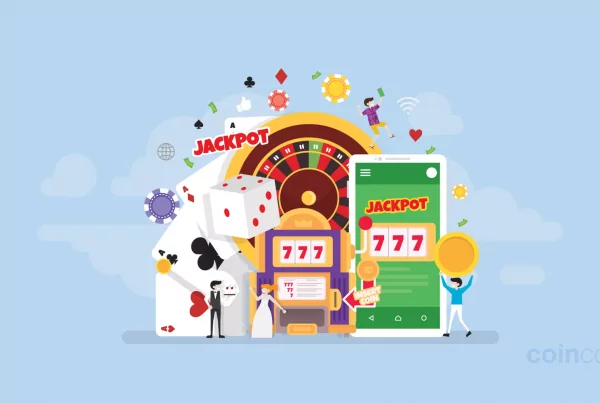
The cryptocurrency ecosystem consists of numerous blockchains, which means that if you want to take advantage of various opportunities in the space, you’ll likely need to transfer tokens from one to another sooner or later.
Crypto bridges allow users to send their digital assets from one blockchain to another, enabling them to make the best of decentralized finance opportunities on different blockchain platforms.
In this article, we are going to examine some of the best crypto bridges available in the market today and go over their features.
List of the best crypto bridges:
- Across Bridge
- Orbiter Finance
- Stargate
- deBridge
- Celer cBridge
Examining the best crypto bridges for transferring tokens between blockchains
In the following sections, we are going to look into the best blockchain bridges. Before we get started, it’s important to point out that crypto bridges are a relatively new concept, and they are responsible for handling large amounts of crypto. This makes them a popular target for hackers. While the security of crypto bridges is getting more robust by the day, you should still be aware that using them isn’t completely risk-free.
Note that the monthly volume and daily transactions stats reflect the data collected on May 16, 2024. Data was sourced from DeFiLlama.
1. Across Bridge
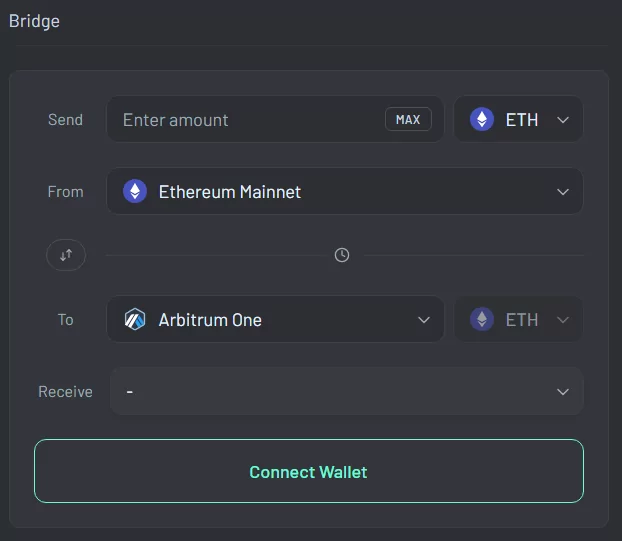
Across Bridge is a cross-chain interoperability protocol designed to provide the fastest and lowest-cost bridging services. It allows users to transfer assets between different blockchain networks efficiently. The protocol utilizes a system of cross-chain intents, enabling streamlined and user-centric interactions with decentralized applications (dApps). These intents are powered by a modular setup, including a request for a quote mechanism, competitive relayers, and a settlement layer.
Across Bridge is one of the most active crypto bridges in the cryptocurrency sector. On May 16 alone, it handled nearly 20,000 transactions, more than any other bridge in that time period. Over that time frame, the bridge handled a whopping $800 million in cross-chain transactions, primarily on Ethereum and Arbitrum networks.
| Monthly Volume | $801 million |
| Daily Transactions | 19,878 |
| Supported Blockchains | Arbitrum One, Base, Ethereum, Linea, Optimism, Polygon, ZkSync Era |
2. Orbiter Finance
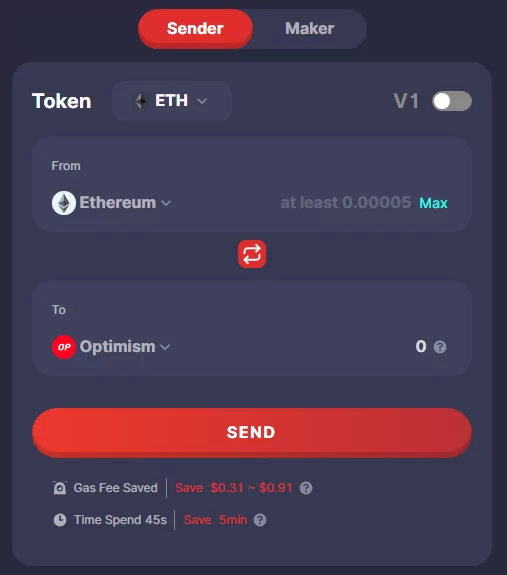
Orbiter Finance is a decentralized cross-rollup Layer 2 bridge. It facilitates fast and efficient asset transfers between various blockchain networks, specifically focusing on Layer 2 solutions. Currently, Orbiter Finance supports zkSync and Arbitrum, with plans to include more rollups in the future. It aims to enhance interoperability and scalability in the Ethereum ecosystem by providing a seamless bridging experience.
The Orbiter bridge supports more than 30 different networks, including Layer 1 and Layer 2 platforms. This makes it one of the bridges with the widest range of supported platforms, which is a great value proposition if you are looking to save up on gas fees by using Layer 2s.
| Monthly Volume | $760 million |
| Daily Transactions | 11,955 |
| Supported Blockchains | Optimism, Blast, Mode, Zora, BEVM, zkSync Lite, Polygon zkEVM, Polygon, Arbitrum Nova, Loopring, Immutable X, Starknet, BNB Chain, Solana, TON, and 10 more |
3. Stargate
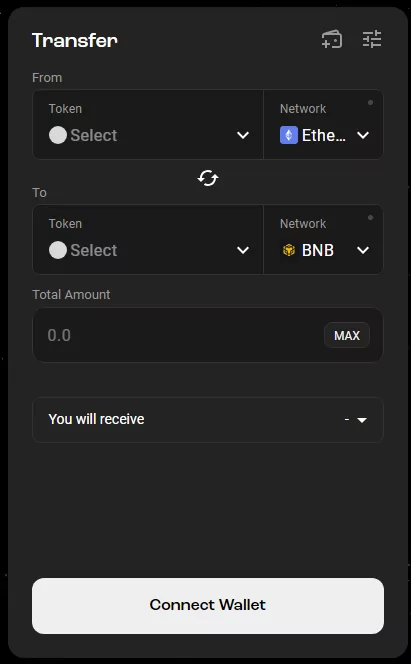
Stargate is a fully composable liquidity transport protocol at the core of Omnichain DeFi. It allows users and decentralized applications (dApps) to transfer native assets across chains using unified liquidity pools with instant guaranteed finality. Stargate supports liquidity provision, where providers earn stablecoin rewards and can farm LP tokens for STG rewards. Additionally, STG token holders can stake to receive veSTG, the governance token, increasing community involvement and governance.
It’s worth noting that Stargate handled more than $958 million in transaction volume over the past 30 days, more than any other cryptocurrency bridge during the period. Meanwhile, the platform handled over 15,8000 transactions, the second-most out of all bridges.
| Monthly Volume | $958 million |
| Daily Transactions | 15,809 |
| Supported Blockchains | Ethereum, BNB, Avalanche, Polygon, Arbitrum, Optimism, Fantom, Metis, zkEVM, zkSync, Base, and 10 more |
4. deBridge
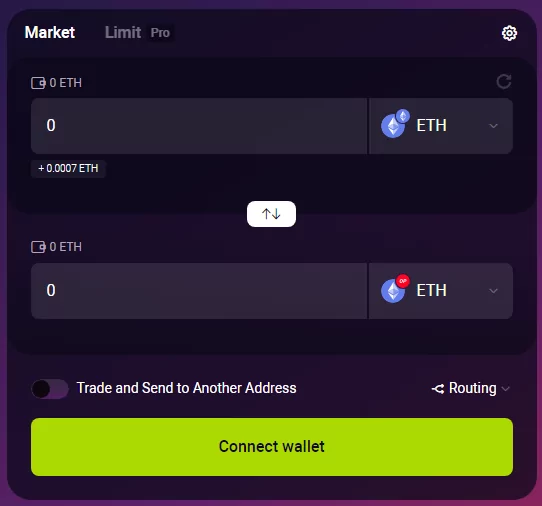
deBridge is a decentralized protocol enabling cross-chain interoperability and liquidity transfers. It allows secure and efficient transfer of data and assets between different blockchains. The protocol is designed for high performance, offering fast finality and minimal slippage. It integrates seamlessly with various blockchain ecosystems, providing developers with tools to build cross-chain applications. Security audits and a bug bounty program ensure the platform’s robustness.
The platform supports all of the most popular blockchain networks, including Ethereum and BNB Chain. However, if you are looking for a crypto bridge that supports the majority of crypto networks, you’ll have to look elsewhere.
| Monthly Volume | $421 million |
| Daily Transactions | 10,974 |
| Supported Blockchains | Ethereum, BNB Chain, Polygon, Arbitrum, Avalanche, Solana, Linea, Optimism, Base, Neon |
5. Celer cBridge
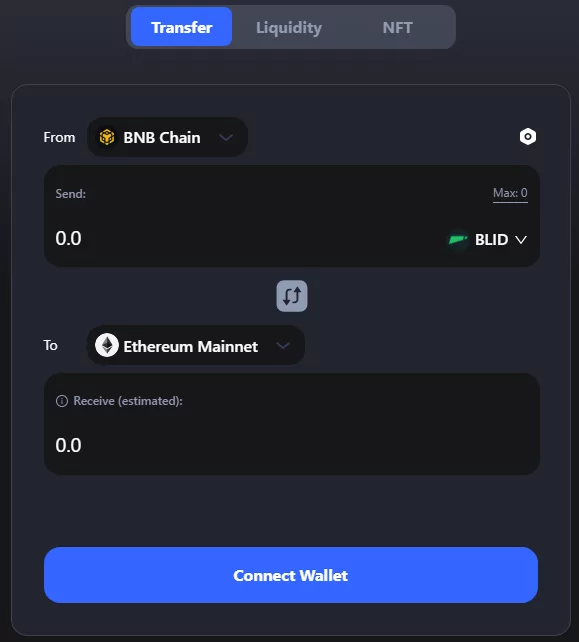
Celer Network is a blockchain interoperability protocol enabling seamless multi-blockchain user experiences for tokens, DeFi, GameFi, NFTs, and governance. It features the Celer Inter-chain Messaging (IM) framework, allowing developers to build inter-chain-native dApps with efficient liquidity and coherent application logic.
Celer cBridge supports fast, secure, and low-cost asset transfers across 40+ blockchains, processing over $14 billion in cross-chain volume. The platform also includes Peti, an omnichain liquidity protocol for zero-slippage trades.
| Monthly Volume | $280 million |
| Daily Transactions | 2,356 |
| Supported Blockchains | Ethereum, BNB Chain, Avalanche, Polygon, Optimism, Arbitrum, Aptos, Fantom, Flow, Base, Linea, Klaytn, and 25 more |
The bottom line
Cryptocurrency bridges are a necessity if you want to make the best out of opportunities in the decentralized finance space. While they do present some risks, they are the only way of transferring coins and tokens across different blockchains.
If you want to avoid paying high transaction fees, it’s best to use a blockchain that has a low gas fee. Solana is one of the best options in that regard. Check how much is Solana gas fee for more information.

